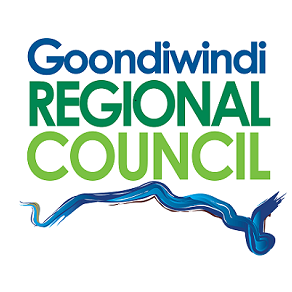Nearly $1 Million Will Fund More Cluster Fencing In Goondiwindi Region
« Back2 April 2019
Nearly $1 Million Will Fund More Cluster Fencing In Goondiwindi Region
Nearly $1 million of funding will go towards more cluster fencing in the Goondiwindi region to help manage the impact of wild dogs and other feral pests.
Goondiwindi Regional Council has secured $980,000 from round three of the Queensland Feral Pest Initiative (QFPI) to fund five cluster fencing groups across the region. The funding is targeted at drought-affected sheep and wool producing areas and will also go towards a mentoring program for wild dog trapping in the eastern part of the region.
The exclusion fencing will be constructed in five cluster groups at Bodumba, Cement Mills, North Bungunya, Spring Creek and Woodland over the next two years.
The new fencing will be in addition to the 465 kms of exclusion fence already erected in cluster groups in the Goondiwindi region with funding from previous rounds of the QFPI. More than 150,000 hectares of land is enclosed by exclusion fencing in the region.
Local grazier Dave Bartlett has felt firsthand the effect that wild dogs can have on a flock. He has two properties, Dunblane and Wyngarra, in the new Cement Mills cluster group. Of the 10 or so properties in the cluster group, most stock sheep or goats.
“I would say since September last year, we’ve lost about 500 sheep,” Mr Bartlett said.
“Myself and neighbours have trapped about 10 wild dogs in the area in the last few months and we’ve just seen there’s another one about. We have a huge problem with dogs and they’ve been a bit out of control lately. We have a lot of timber in our area and they’re very good at hiding.”
The Cement Mills cluster will join with the Rabbit Fence to form a much broader protected area. Goondiwindi Regional Council Mayor Graeme Scheu said the construction of exclusion fencing was an excellent opportunity for local producers to invest in their land and their livestock.
“We’ve already seen how successful exclusion fencing has been in the region when used with coordinated control programs,” Cr Scheu said. “Wild dogs are listed as priority pests in the Goondiwindi Regional Council Weed and Pest Plan and the management of these and other invasive species is really key for our local producers, especially in times of drought.”
Mr Bartlett said the success of the funding application was a combined effort from Council, landowners and other stakeholders.
“Council has been very supportive of the project,” Mr Bartlett said. “They’ve well and truly been on board with baiting and trapping and all that side of things. This project could give more producers the confidence to run sheep or else the possibility to increase their stocking capacity.”
The funding is part of an additional $7 million from QFPI allocated to assist regional communities to construct cluster fencing and undertake weed and pest animal control. The program aims to manage invasive plants and animals and grow jobs in the sheep industry.
“We’re really excited about the funding,” Mr Bartlett said. “It’s not the final answer to the problem, but it will go a long way towards it.”
For more information, contact:
Rebecca Morrissy, Natural Resource Management Officer
Goondiwindi Regional Council
Phone: 0427 638 835
E-mail: RMorrissy@grc.qld.gov.au

